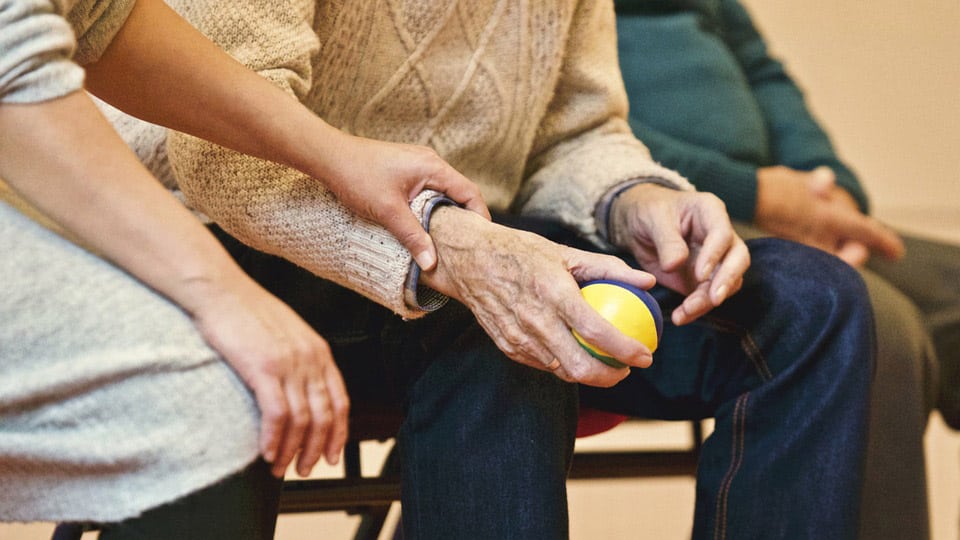“Whatever you do, don’t tell Maa about her Dementia Diagnosis.”
Doctors often hear this line because the families of the person diagnosed with Dementia are worried that the truth will destroy their loved one and will cause depression and sorrow.
Some of the doctors agree with this point, but many doctors believe that it is the patients right to be informed about their condition. Even patients with dementia should hear the reality of their situation and be informed about the disease. Acceptance of something is the first step towards addressing it.
Keeping the diagnosis a mystery makes it difficult to involve the person with dementia in the course of action for progress. If you keep it a secret many things would become very difficult to follow, for example engaging them in brain stimulating activities, managing medications etc.
Open communication helps in increasing the ability to handle difficult behavior that a loved one may portray.
A few considerations that will be helpful when talking to your loved one about their diagnosis:
- Make sure you are in a quiet place with good lighting and no distractions.
- Set a positive mood for communicating. Make sure you both are relaxed.
- Speak clearly and slowly and give one message at a time.
- Allow the person to understand the condition and ask questions regarding it. Let your loved one take enough time to absorb information.
- Ensure your loved one that someone is always available for their support.
- Tell them that there is nothing to hide about it. Open candid communication is the key.
Following are few steps that you can follow, if you are facing any difficulty in sharing Dementia diagnosis with your loved one:
- Learn as much as you can about Dementia so you can address your loved one with certainty and answer questions related to the disease without creating an atmosphere of embarrassment for them. It is a medical condition and no patient should be made to feel awkward about it.
- You can begin by saying that you are worried about their memory and inquire as to whether they have similar concerns. They may have noticed they are forgetting things, and not able to write or read very well lately or they may have found themselves feeling worried or moody.
- They may deny that anything is wrong with them. Don’t argue with them if anything like this happens. You could give particular cases of things that have happened recently to cause concern. Be particular and ensure you have several key occurrences. Yet, be set up for the way that they may not recall them. Let your love and understanding lead the conversation.
- If the doctor has clarified the situation, adopt a positive strategy. For example, tell your Mom that she is not the only one, that many individuals have this condition and that there is a great deal of life left!
- Answer your loved one’s inquiries completely, yet push the positive—for instance, that memory pills may help, and that research continues to locate a superior treatment or cure. Share Information about the condition and how it can be managed. Share information regarding the medications and healthy meal plans. Let your care for them, win over their anxiety.
- Emphasize that you will always be present in every part of their journey. Your confidence and positive tone will comfort them. At the end of the conversation, agree and decide on a care plan of what will happen next and reassure them at every stage of the conversation. Let them know you are there to help and that you want to make sure they are okay.
In particular, have empathy for the loved one in your care, and communicate with a cheery, positive spirit. Engage your loved one in meaningful and brain stimulating activities which will help in building their confidence and self-esteem. Also, provide them with great care and loving support. And if the journey becomes overpowering to you then seek professional help, join support groups, attend workshops on Dementia, or hire trained caregivers.
Diagnosis of Dementia can leave a person detached from others. Just make sure that the person is socially connected with people they want to spend time with. This helps in keeping them engaged.
This content is shared by Samvedna Senior Care
Samvedna Senior Care has two primary goals, active ageing and dementia care. Their services, which are non-medical in nature, include at-home intellectual and dementia care, a senior citizen’s activity centre in Gurgaon and emergency care for seniors. Their staff are psychologists and social workers trained in dementia and geriatric issues. You can know more about them here www.SamvednaCare.com.
To know more call +91-9818421446, 0124-4229659







